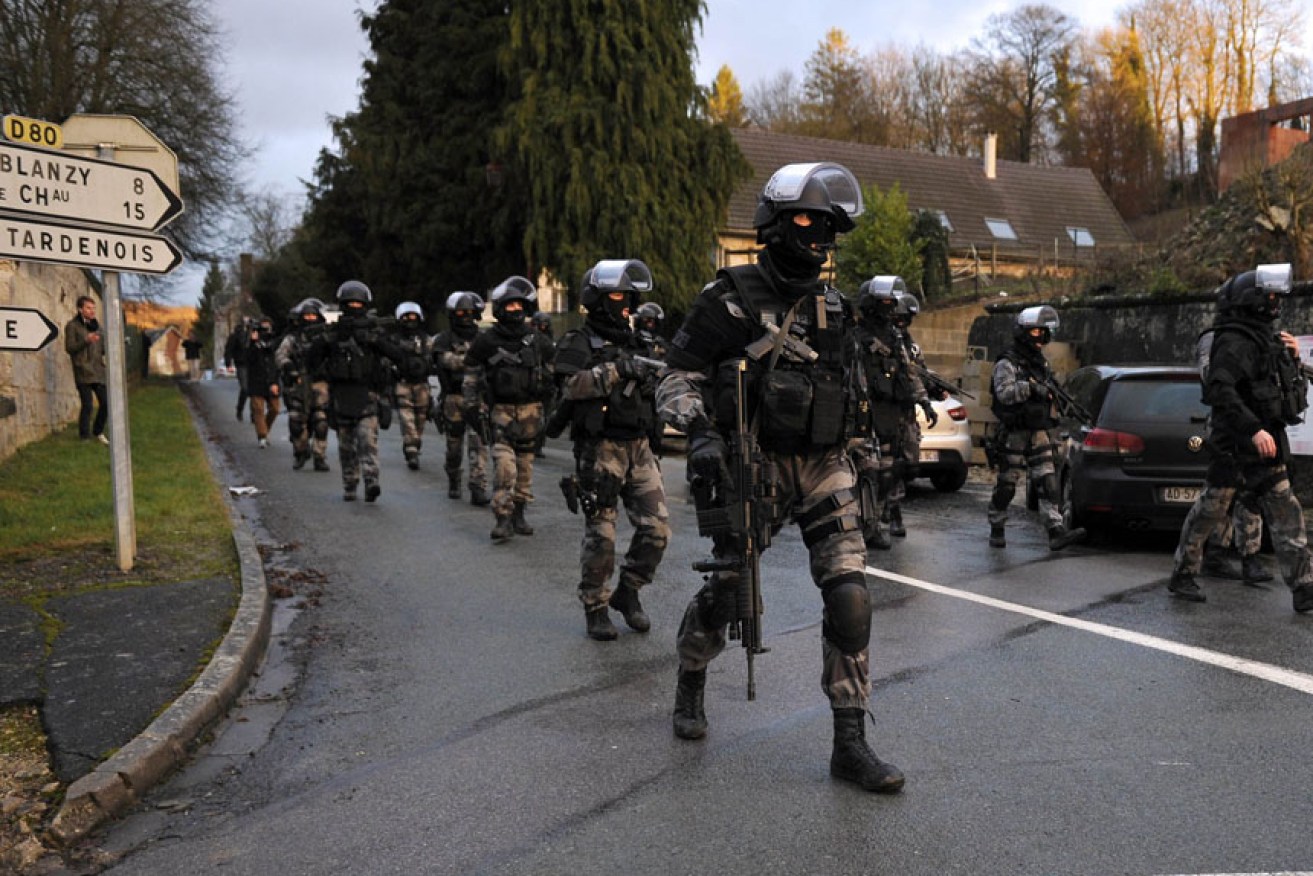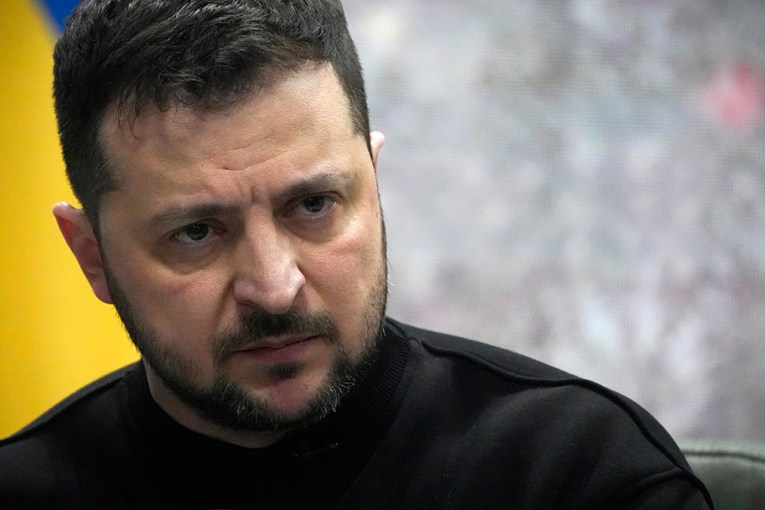Paris shooting gunmen ‘located’


AAP
French SWAT police have swarmed on several villages north-east of Paris after reports the suspected Charlie Hebdo gunmen were spotted in the region and may have fled to a nearby forest.
Counter-terrorism police have been seen in full force searching homes in the towns of Longpont and Corcy after the discovery of one of the abandoned getaway cars in the area.
• Paris shooting: a tribute to the victims
• Paris shooting: free speech in the firing line
The area is 90km from Paris.
 According to French newspaper La Monde, the two suspects, brothers Cherif Kouachi and Said Kouachi, are believed to have robbed a local petrol station, taking food and fuel, on Thursday morning.
According to French newspaper La Monde, the two suspects, brothers Cherif Kouachi and Said Kouachi, are believed to have robbed a local petrol station, taking food and fuel, on Thursday morning.
A Renault Clio driven by armed and masked men was caught on the service station’s CCTV, and is now being examined by police.
According to the BBC, the petrol station manager identified the men as the Kouachi brothers.
Police have also extended their search to the nearby Retz forest in the region of Picardy, where it is suspected the brothers are hiding in bushland.
Locating the men, aged in their early 30s, could be a tough task for authorities, with the forest larger than the city of Paris.
[jwplayer mediaid=”190188″]
AFP reports the high alert area has been extended north of Paris to cover the region where the men were reportedly spotted.
The French Interior Ministry has confirmed nine people are in custody in connection to the shooting which left 12 people dead, but has not revealed if they have ties to the suspects.
Thursday was declared a national day of mourning after the men stormed the office of controversial newspaper Charlie Hebdo, killing journalists, cartoonists and police officers on Wednesday morning.
The two brothers were already known to French and US counter-terrorism authorities, and had been put on the American no-fly list.
A US official said the older brother, Said Kouachi, had travelled to Yemen. It was unclear whether he was there to join up with extremist groups like Al-Qaeda.
Both men – the Paris-born offspring of Algerian parents – were orphaned at a young age.
Cherif, a former pizza delivery man, had appeared in a 2005 French TV documentary on Islamic extremism and was sentenced to 18 months in prison in 2008 for trying to join fighters battling in Iraq.
US officials would not say if the Kouachis were believed to have fought in the Middle East with extremist groups. It would not be unusual for known extremists to be placed on the US no-fly list.
A French security official, speaking on condition of anonymity because of the sensitivity of the matter, said that American authorities had shared intelligence with France indicating that Said had travelled to Yemen several years ago for training, and were seeking to verify its accuracy.
Before the words of a radical preacher persuaded him to book a flight to Syria to wage holy war, Cherif Kouachi was a ladies’ man who belted out rap lyrics.
It was the teachings of a firebrand Muslim preacher that put him on the path to jihad in his rough-and-tumble neighbourhood of northeastern Paris, Kouachi was quoted as saying in the documentary.
Associated Press reporters who covered his 2008 trial, which exposed a recruiting pipeline for Muslim holy war in the multi-ethnic and working-class 19th arrondissement of Paris, recalled a skinny young defendant who appeared very nervous in court.
Cherif Kouachi’s lawyer said at the time that his client had fallen in with the wrong crowd.
During the trial, Kouachi was said to have undergone only minimal training for combat – going jogging in a Paris park to shape up and learning how a Kalashnikov automatic rifle works by studying a sketch.
He was described at the time as a reluctant holy warrior, relieved to have been stopped by French counter-espionage officials from taking a Syria-bound flight that was ultimately supposed to lead him to the battlefields of Iraq.
French Interior Minister Bernard Cazeneuve, however, said Thursday that Kouachi had been described by fellow would-be jihadis at the time as “violently anti-Semitic”.
Imprisonment changed him, his former lawyer Vincent Ollivier told Le Parisien newspaper in a story published Thursday.
Kouachi became closed off and unresponsive and started growing a beard, the lawyer said, adding that he wondered whether the stint behind bars transformed his client into a ticking time bomb.
After he was released from prison, he worked in a supermarket’s fish section in the Paris suburbs for six months beginning in 2009. Supervisors said he gave no cause for concern.
In 2010, police detained him again in a probe of an alleged plot to free an Islamic militant sentenced to life in prison for bombing a Paris train line in 1995. Kouachi was ultimately released with no charges ever brought.
Much less has become public about Said, but Cazeneuve said the jobless resident of the city of Reims was also known to authorities, despite having never been prosecuted, because he was “on the periphery” of the illegal activities his younger sibling was involved in.
In Reims, about 145km northeast of Paris, Said frequented a prayer room on the ground floor of an apartment building, according to the local imam, Abdul-Hamid al-Khalifa.
Al-Khalifa told the AP that Said wore traditional North Africa clothes to prayers and didn’t mix much — if at all — with other worshippers.
“Typically, he’d come late to prayers and leave right when they were done,” Al-Khalifa said in a telephone interview.
—with AAP.







